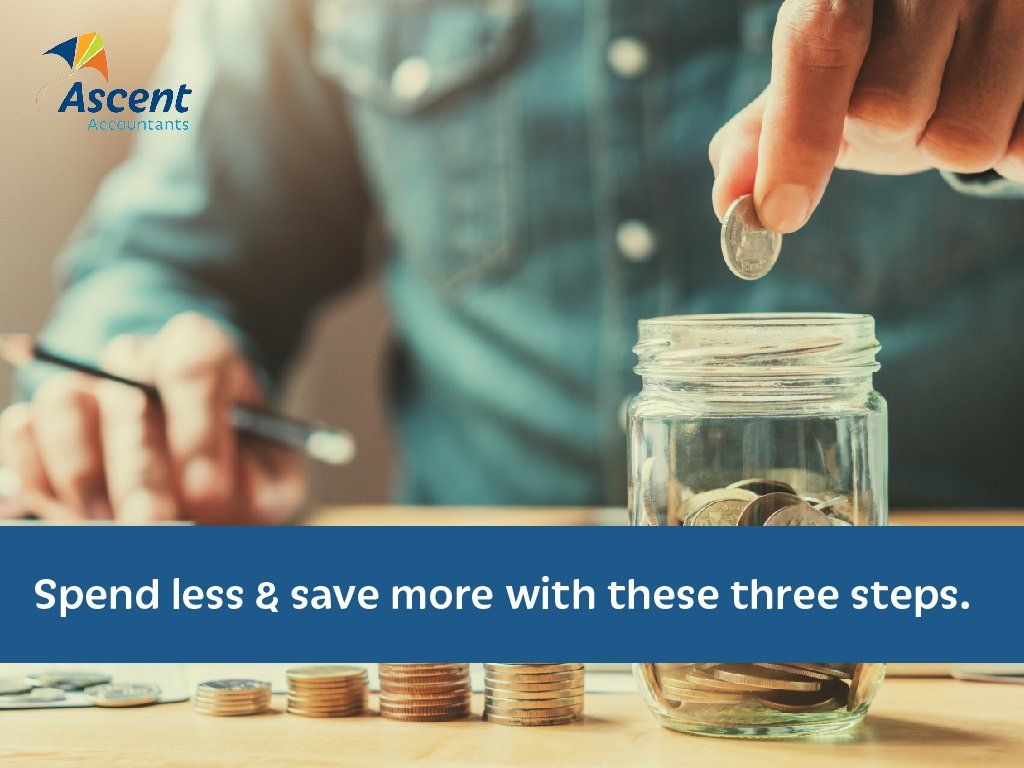Spend less & save more with these three steps.

With home loan interest rates increasing, it’s important to be careful with your spending habits. For example, if you’ve borrowed $500,000 to purchase your home, you might need an additional $470 a month by early next year — or even as soon as December.
If you were one of the borrowers who homed in on a mid-pandemic deal, you’re in even more trouble. For example, say you signed up for a two-year, 1.99% deal in 2020 for a $750,000 mortgage. At the moment, your repayments are sitting at about $2,770 a month. When your fixed fee rate ends (very soon), you could be dealt a 5.99% “deal”, which bumps your monthly repayments to $4,491 a month! Most people stretch themselves thin when it comes to mortgages, so that extra $1,723 is basically going to be impossible to find.
So, aside from the obvious step of reviewing lenders and getting a better interest rate, here are three steps to spending less and saving more.
Three steps to spending less.
1. Track spending & expenses.
It’s impossible to start spending less without knowing what you’re currently spending. So, map out where your money is going. Start small and simply write down your spending every day for one week — if you get paid fortnightly, you might like to do this over a two-week period instead. For most people, this includes bills, food, entertainment, subscriptions, petrol, and so on.
An Excel spreadsheet is probably the easiest way to manage this information. You can also colour-code different spending categories, such as bills, entertainment, food, and so on. A simple way to input your transactions is by referencing your banking app (or through a hardcopy statement).
Tracking over a longer period gives you a more realistic picture, so we suggest doing this for at least eight weeks.
2. Review spending habits.
With a good backlog of spending data behind you, it’s time to review the data. At the end of your tracking period, look at your recorded transactions to see where your money is going. You’ll probably be surprised at how the small things add up. You might also discover hidden costs, such as account fees or subscriptions you don't use anymore, or mistaken transactions.
Look at all your transactions and define what your "needs" are — essential items you need to live. This is probably food and living bills (power, water, gas), insurances, rent or mortgage payments, childcare costs, petrol, and so on. The ones left over are "wants". These are things you could cut back on or live without for a while — Netflix, regular UberEATS, HelloFresh, casual sports sessions, and more.
3. Change spending habits.
Like we said before, small things add up. So, making lots (and lots and lots) of small adjustments in your spending will make a big difference and help you avoid overspending. Ultimately, the goal is to minimise needs, eliminate unnecessary wants, and cut back on the ones you still want to splurge on a little, so you can put as much as possible into savings (and your mortgage).
Start by working out how much your needs cost you each month. Ask yourself, “can I get this cheaper somewhere else?”. You might discover that you’re buying petrol on an expensive petrol day, or that swapping to a different internet provider can save you $20 each month. Taking time to compare insurance providers often pays off too.
Anything left over can be spread across your wants or put into savings. So, when considering your wants, take a look at what can be reduced here. For example, you might discover that Binge is $5 cheaper per month than Netflix. You could decide that Friday nights are reserved for takeout, and commit to cooking budget-friendly meals at home the other six nights. You might even be able to transfer petrol from a need to a want, and start taking the bus three days a week.
Like you did with needs, review your wants and ask yourself, “can I get this cheaper somewhere else?”. Another one to ask here is: “can I cut back in another area and spend it on this instead?”. We suggest cutting out superficial spending completely, at least for a small period. When it comes to clothes, salon days, beauty treatments, your regular long-mac topped up, golf weekends, or adding to your wine collection, ask yourself: Do I need this right now? And no cheating (because we know the answer is “no”).
How can Ascent Account help here?
Great question! We work with trusted financial advisors who can support you in minimising your spending so you can maximise your mortgage repayments. Contact us to talk about this in more detail — we’d love to help set you up with a reliable financial advisor that we can personally vouch for.
Need help with your accounting?








